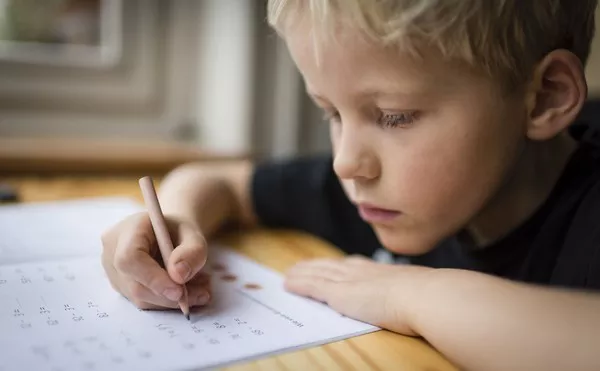Loneliness is often viewed as a solitary experience, marked by the absence of others. Yet, one of the most paradoxical forms of loneliness occurs within the context of friendships. This phenomenon, known as “lonely friends,” is a deeply misunderstood and underexplored aspect of human relationships. In this article, we will delve into the psychological underpinnings of this paradox, exploring how individuals can feel isolated despite being surrounded by friends, and what this reveals about the complexities of human connection.
Understanding the Concept of “Lonely Friends“
The term “lonely friends” refers to a state where individuals maintain friendships but still feel emotionally isolated and disconnected. This condition can arise for various reasons, including unmet emotional needs, superficial connections, or an inability to express vulnerability within the friendship. The concept challenges the traditional notion that loneliness is solely a consequence of being alone, highlighting that loneliness can persist even in the company of others.
Loneliness within friendships is often more painful and confusing than loneliness in isolation because it contradicts societal expectations. Friendships are supposed to be a source of comfort, understanding, and support. When these relationships fail to fulfill these needs, the resulting loneliness can feel particularly acute.
The Psychological Dynamics Behind Lonely Friendships
To understand lonely friends, it is essential to explore the psychological dynamics that contribute to this experience. Several key factors play a role:
1. Superficial Connections
One of the most common reasons for feeling lonely within friendships is the prevalence of superficial connections. In today’s fast-paced, digitally connected world, many friendships are built on convenience rather than deep emotional bonds. These relationships may involve regular social interactions, but they lack the depth needed to provide genuine emotional support.
Superficial friendships often focus on external aspects of life, such as shared interests, social activities, or mutual acquaintances. While these connections can be enjoyable, they may not offer the emotional intimacy required to combat loneliness. When individuals are unable to share their deeper thoughts, feelings, and vulnerabilities with their friends, they may begin to feel isolated, even in a crowd.
2. Unmet Emotional Needs
Every individual has unique emotional needs within their relationships. These needs can include the desire for empathy, validation, understanding, and support. When these needs go unmet in friendships, individuals may experience feelings of loneliness and inadequacy.
Unmet emotional needs can occur for various reasons. Sometimes, friends may lack the emotional capacity or awareness to provide the support their friend needs. In other cases, individuals may struggle to express their needs, fearing judgment or rejection. This lack of emotional fulfillment can lead to a sense of isolation, even when surrounded by friends.
3. Fear of Vulnerability
Vulnerability is a critical component of deep, meaningful relationships. It involves the willingness to share one’s true self, including fears, insecurities, and emotional struggles. However, many individuals fear vulnerability, believing it will lead to rejection or judgment.
In friendships where vulnerability is absent, individuals may feel disconnected and lonely. Without the ability to share their authentic selves, they may feel as though their friendships are based on a façade, rather than genuine connection. This fear of vulnerability can create a barrier to emotional intimacy, perpetuating feelings of loneliness.
4. Social Comparison
Social comparison is another factor that can contribute to feelings of loneliness within friendships. When individuals compare themselves to their friends, they may feel inadequate or inferior. This can lead to a sense of disconnection, as they perceive themselves as different or less worthy than their peers.
Social media exacerbates this issue by presenting curated, idealized versions of others’ lives. When individuals compare their real-life experiences to the highlight reels of their friends’ lives, they may feel a sense of isolation and loneliness. This can be particularly challenging in friendships where comparison becomes a dominant theme.
5. Changing Life Circumstances
As individuals progress through different stages of life, their needs, interests, and priorities may change. These changes can strain friendships, particularly if friends are at different life stages or facing different challenges. For example, a friend who is single may feel lonely and disconnected from a group of friends who are all married or have children.
Changing life circumstances can lead to a sense of alienation, as individuals struggle to relate to their friends’ experiences. This can create a feeling of loneliness within the friendship, even if the relationship remains intact on the surface.
The Impact of Lonely Friendships on Mental Health
Lonely friendships can have a profound impact on an individual’s mental health. The disconnect between the presence of friends and the experience of loneliness can lead to feelings of confusion, frustration, and sadness. Over time, these emotions can contribute to more serious mental health issues, such as depression and anxiety.
1. Depression
Depression is often linked to feelings of loneliness and isolation. When individuals experience lonely friendships, they may feel a pervasive sense of sadness and hopelessness. The discrepancy between their social connections and their emotional experience can exacerbate these feelings, leading to a deeper sense of despair.
In some cases, the loneliness within friendships may contribute to a cycle of depression, where individuals withdraw further from social interactions, leading to even greater isolation. This withdrawal can reinforce the belief that they are unworthy of meaningful connections, perpetuating the cycle of loneliness and depression.
2. Anxiety
Anxiety is another common consequence of lonely friendships. The fear of rejection, judgment, or abandonment can create a heightened sense of anxiety within social interactions. Individuals may become hyper-aware of their perceived shortcomings or differences, leading to feelings of self-doubt and insecurity.
This anxiety can manifest in various ways, including social anxiety, where individuals fear being in social situations, or generalized anxiety, where the fear of loneliness and disconnection permeates all aspects of life. The constant worry about maintaining friendships or being accepted can be mentally and emotionally exhausting.
3. Low Self-Esteem
Lonely friendships can also contribute to low self-esteem. When individuals feel disconnected from their friends, they may internalize these feelings as a reflection of their worth. They may believe that they are unlovable or that there is something inherently wrong with them that prevents them from forming meaningful connections.
This negative self-perception can erode self-esteem over time, leading to a diminished sense of self-worth. Low self-esteem can further isolate individuals, as they may withdraw from social interactions or avoid forming new friendships out of fear of rejection.
See Also: How to Fix a Relationship After Lying?
How to Address Loneliness in Friendships
Recognizing and addressing loneliness within friendships is crucial for maintaining mental and emotional well-being. While lonely friendships can be challenging, there are steps individuals can take to alleviate these feelings and build more meaningful connections.
1. Cultivate Deeper Connections
One of the most effective ways to combat loneliness within friendships is to cultivate deeper connections. This involves moving beyond superficial interactions and fostering emotional intimacy. Individuals can start by sharing more about their thoughts, feelings, and experiences with their friends.
Creating a space for open and honest communication is key. By being vulnerable and authentic, individuals can encourage their friends to do the same. This can lead to a more meaningful and fulfilling friendship, where both parties feel understood and supported.
2. Express Emotional Needs
It is essential for individuals to express their emotional needs within friendships. This can be challenging, especially for those who fear judgment or rejection. However, communicating these needs is crucial for building a supportive and fulfilling relationship.
Individuals can start by identifying their emotional needs and considering how their friendships can meet these needs. They can then have an open and honest conversation with their friends about what they need to feel connected and supported. This can lead to a deeper understanding and stronger bond within the friendship.
3. Embrace Vulnerability
Embracing vulnerability is a critical step in addressing loneliness within friendships. While it can be difficult to open up and share one’s true self, doing so can create a deeper and more meaningful connection. Vulnerability allows individuals to be seen and understood for who they truly are, fostering a sense of belonging and acceptance.
To embrace vulnerability, individuals can start by sharing small, personal details with their friends. Over time, they can gradually increase the level of openness and authenticity in their interactions. This can lead to a stronger and more fulfilling friendship, where both parties feel emotionally connected.
4. Reevaluate Friendships
In some cases, loneliness within friendships may be a sign that the relationship is no longer fulfilling or healthy. It is important for individuals to reevaluate their friendships and consider whether they are meeting their emotional needs.
If a friendship consistently leaves an individual feeling lonely and unsupported, it may be necessary to distance oneself from the relationship or seek out new connections. While this can be difficult, it is essential for maintaining emotional well-being and finding relationships that are more aligned with one’s needs and values.
Conclusion
Lonely friends represent a complex and paradoxical aspect of human relationships. Despite the presence of social connections, individuals can still experience profound feelings of loneliness and isolation within their friendships. This loneliness can have significant implications for mental health, contributing to depression, anxiety, and low self-esteem.
However, by cultivating deeper connections, expressing emotional needs, embracing vulnerability, and reevaluating friendships, individuals can address loneliness within their relationships and build more meaningful and fulfilling connections. Understanding and addressing the phenomenon of lonely friends is crucial for fostering healthy, supportive, and emotionally satisfying friendships.
Related topics:





















